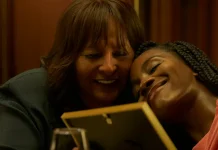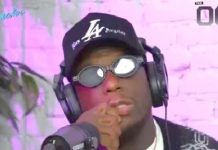*This is very, very interesting, but unfortunately not surprising. An 18-year-old graduating senior from Clover Hill High School in Midlothian, VA named Kabir Alli posted a video clip on Twitter this week of a Google image search for “three black teenagers” which turned up an array of police mugshots. Then he and his friends are shown in the video searching for three white teenagers. And guess what? All they found were groups of smiling young people.
Google, you’ve got a problem.
“I had actually heard about this search from one of my friends and just wanted to see everything for myself. I didn’t think it would actually be true,” Alli told USA Today. “When I saw the results I was nothing short of shocked.”
The Twitter post has been retweeted nearly 65,000 times since Tuesday, and Twitter users are using the hashtag #threeblackteenagers to discuss the implications of the video. The conversation about online racism comes as people express anger that the photo of Brock Turner, a white former Stanford University student convicted in a high-profile sexual assault case, was from high school yearbook, not his police mugshot.
“I understand it’s all just an algorithm based on most visited pages but Google should be able to have more control over something like that,” Alli said.
YOOOOOO LOOK AT THIS pic.twitter.com/uY1JysFm8w
— July 3rd. (@iBeKabir) June 7, 2016
People have been flagging racial bias in the results of search engines for years. Google says it’s merely reflecting back the biases that exist in society and that show up in what and how people search online.
In an emailed statement, Google said its image search results are a reflection of what’s on the Web, including the frequency with which certain types of images appear and how they are described.
“This means that sometimes unpleasant portrayals of sensitive subject matter online can affect what image search results appear for a given query,” the statement read. “These results don’t reflect Google’s own opinions or beliefs — as a company, we strongly value a diversity of perspectives, ideas and cultures.”
Some people agreed. “Loooool. Not Google’s fault, though. Just means black people need to work on stock online presentation and presence,” one person tweeted.
Alli says he, too, does not believe Google is racist. Since tweeting about the results, they have changed somewhat, largely as a result of his online experiment.
“The fact all these mugshots came up is wrong, but black males making poor choices also plays a major role. If we don’t want that image we need to work to change it,” he said. “It shouldn’t be so difficult to find normal non-offensive pictures of three black teenagers. That search sort of portrays us as a whole and those pictures are not us. We have a lot to offer and that search does not do us any kind of justice.”
UCLA information studies and African American studies professor Safiya Umoja Noble says society should not let Google off the hook so easily.
“Google has had many, many incidents of racial bias appearing in its algorithm. It consistently issues a statement that it’s not responsible for the output of its algorithm. And yet we have to ask ourselves: If Google is not responsible for its algorithm, who is?” said Noble, who is writing a book that compiles and analyzes the social consequences of racially-biased online searches.
Professor Noble makes an excellent. You can get MORE of this USA Today report at MSN News.
We Publish News 24/7. Don’t Miss A Story. Click HERE to SUBSCRIBE to Our Newsletter Now!






